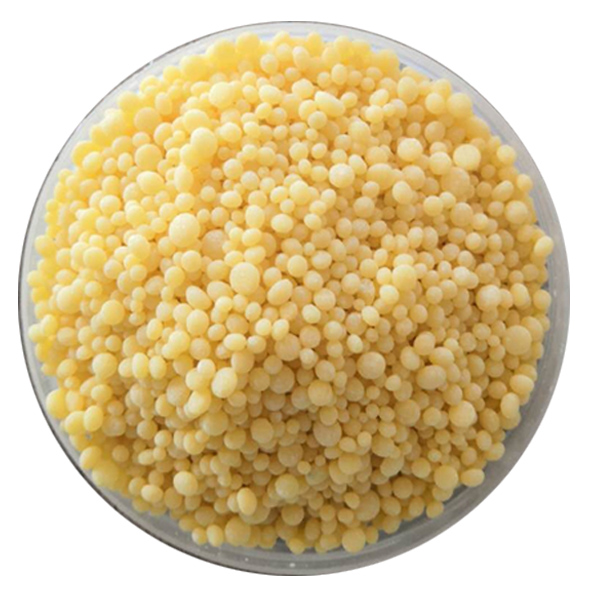
Nov . 11, 2024 22:25 Back to list
potassium chloride
Potassium Chloride An Overview
Potassium Chloride, commonly known as KCl, is a chemical compound consisting of potassium and chlorine. With its multiple applications in various fields, ranging from agriculture to medicine, potassium chloride plays a significant role in our daily lives, even if we are often unaware of its presence.
Chemical Composition and Properties
Potassium chloride is an ionic compound, composed of one potassium ion (K+) and one chloride ion (Cl-). The compound appears as a colorless or white crystalline solid and is highly soluble in water, making it an effective electrolyte. Its melting point is approximately 770°C, with a density of 1.98 g/cm³.
One of the most notable properties of potassium chloride is its ability to conduct electricity when dissolved in water. This characteristic makes it essential in various industries, particularly in the production of fertilizers, where it acts as a vital source of potassium, an essential nutrient for plant growth.
Agricultural Uses
In the agricultural sector, potassium chloride is primarily used as a fertilizer. Potassium, one of the three major nutrients required for plant growth along with nitrogen and phosphorus, is crucial for various physiological processes. It helps regulate water uptake in plants, enhances disease resistance, and improves the overall quality of crops.
Farmers often use KCl to address potassium deficiencies in the soil, leading to improved yields and healthier plants. It is particularly beneficial for root crops, such as potatoes and carrots, as well as for fruits like bananas and tomatoes. As a result, potassium chloride plays a significant role in ensuring food security and sustaining agricultural productivity.
Industrial Applications
Beyond agriculture, potassium chloride is utilized in a variety of industrial applications. It is commonly used in the manufacturing of potassium hydroxide and potassium carbonate, two compounds essential in various chemical processes. The compound also serves as a flux in metallurgy and is employed in the production of glass and soap. Additionally, KCl is used in the formulation of various types of de-icing agents for roadways in colder climates, providing safe passage during winter months.
potassium chloride

Another vital industrial application of potassium chloride is in the production of various food products. It is often used as a salt substitute, particularly for individuals seeking to reduce their sodium intake. KCl provides a similar taste profile to regular table salt while containing significantly lower sodium levels.
Medical Uses
In the medical field, potassium chloride is crucial for maintaining proper electrolyte balance in the human body. Electrolytes are essential for numerous bodily functions, including nerve signaling, muscle contraction, and hydration. KCl is often used to treat or prevent potassium deficiencies, particularly in patients who lose potassium through excessive vomiting, diarrhea, or certain medical conditions.
Potassium chloride is also used in intravenous (IV) fluids to ensure that patients receive adequate electrolytes during hospitalization. Additionally, KCl plays a role in some medical procedures, including lethal injection, where it is used to induce cardiac arrest.
Environmental Impact and Safety
While potassium chloride is a widely used compound, it is essential to consider its environmental impact. Excessive use of KCl in agriculture can lead to the leaching of potassium into water bodies, contributing to nutrient pollution and potential harmful algal blooms. Therefore, responsible application and management of potassium chloride are crucial to minimize environmental risks.
In terms of safety, potassium chloride is generally recognized as safe when used appropriately. However, like any chemical, it can pose risks if not handled correctly. Ingesting excessive amounts of KCl can lead to hyperkalemia, a condition characterized by elevated potassium levels in the blood, which can have serious health implications.
Conclusion
In conclusion, potassium chloride is a versatile and essential compound with a broad range of applications across various industries. From enhancing agricultural productivity to playing a crucial role in medical treatments, KCl significantly impacts our daily lives. Its importance, however, also highlights the need for responsible use and management to mitigate potential environmental risks and health concerns. As we continue to rely on potassium chloride in various aspects, understanding its properties and applications is crucial for harnessing its benefits while minimizing adverse effects.
-
10 10 10 Fertilizer Organic—Balanced NPK for All Plants
NewsJul.30,2025
-
Premium 10 10 10 Fertilizer Organic for Balanced Plant Growth
NewsJul.29,2025
-
Premium 10 10 10 Fertilizer Organic for Balanced Plant Growth
NewsJul.29,2025
-
Premium 10 10 10 Fertilizer Organic for Balanced Plant Growth
NewsJul.29,2025
-
50 Pound Bags of 13-13-13 Fertilizer for All Plants – Bulk & Organic Options
NewsJul.28,2025
-
High-Efficiency 15-30-15 Granular Fertilizer for Healthy Crops
NewsJul.28,2025
